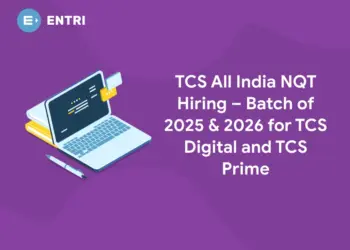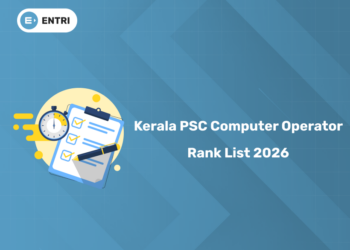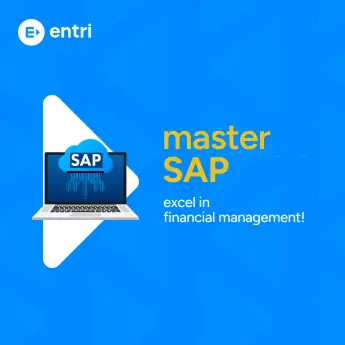Table of Contents
Key Takeaways:
- SAP fresher salaries vary widely depending on geography, expertise, and employer.
- Specializing in high-demand modules increases salary prospects.
- Major metros and global hubs pay premium salaries.
- Relevant certifications and practical experience boost your market value.
- Negotiating professionally can maximize your starting package.
Introduction
Starting your career journey is an exciting yet anxious time. You’ve invested countless hours preparing yourself—earning degrees, gaining certifications, and soaking up knowledge. Yet, one question is front and center for every fresher stepping into SAP roles: “What can I realistically expect to earn?” This question isn’t just about money; it’s about planning your future, understanding your worth, and ensuring your skills are rewarded fairly. In this guide, we bring you current, detailed insights into SAP salaries in 2025, tailored especially for freshers, to clear the fog and empower you to take confident professional steps forward.
SAP roles span globally, and pay varies widely based on location, expertise, and company. With SAP’s growing adoption—especially cloud technologies like SAP S/4HANA—the demand for fresh talent is booming, and salary prospects remain promising for those with the right skills. This blog will help you understand salary ranges, factors affecting pay, modules worth specializing in, negotiation tips, and how the right Entri courses can fast-track your success in this sought-after field.
Read more at What is SAP?
Understanding SAP Salary in 2025: The Current Landscape
For fresh SAP consultants in 2025, salaries range widely based on geography and specialization:
| Region | Avg. Fresh SAP Salary Range (USD) | Approximate Salary Range (Local Currency) |
|---|---|---|
| United States | $70,000 – $100,000 | ₹5.2 – 7.4 lakh |
| India | ₹3.5 – ₹8 lakh | $4,200 – $10,000 |
| Europe | €40,000 – €70,000 | ₹3.5 – 6.1 lakh |
| Middle East | $50,000 – $70,000 | AED 1.84 – 2.57 lakh |
Join the SAP FICO course of the Entri App! Join Now!
What Freshers Are Actually Earning in India
According to recent data from multiple Indian salary platforms, fresh SAP consultants can expect an average starting salary between ₹3.5 to ₹6.5 lakhs annually. However, specific roles at global companies like SAP Labs in India pay significantly higher, with reported fresher salaries averaging ₹13 to ₹16.5 lakhs, and some roles going as high as ₹27 lakhs per annum for associate developers and software engineers. These numbers highlight that your salary can vary drastically based on your skills, company, and role.
Factors Influencing SAP Salaries in 2025
Salaries for SAP freshers in 2025 don’t come from a fixed formula—they result from several interconnected factors shaping how much value companies place on your skills today. Understanding these elements helps you not just evaluate offers but strategically grow your career to maximize your earnings.
Location Is Key
The city or country where you work significantly impacts pay. For example, freshers in Indian metro hubs like Bangalore, Mumbai, and Hyderabad generally earn higher salaries compared to smaller cities due to demand concentration and living costs. International locations like the US, Europe, and Middle East offer distinct pay scales, often higher but with different job market dynamics.
Select Your SAP Module Wisely
Different SAP modules have different salary bands. Modules like SAP S/4HANA and SAP FICO command premium because of their strategic importance and complexity. MM and SD modules are stable in demand but typically have slightly lower starting salaries. Specialized technical modules like SAP ABAP or HANA skillsets often attract a premium.
Education and Certifications Matter
Companies value certifications as proof of your SAP expertise and commitment. Certified freshers often have an edge in salary discussions. Similarly, advanced degrees or relevant educational backgrounds boost your credibility with employers.
Company Size and Reputation
Multinational corporations and large consultancies typically offer better salaries and benefits than smaller firms or startups. The scale and impact of your employer’s business influence how much they are willing and able to pay.
Experience & Additional Skills
Within freshers, those with internships, hands-on projects, or supplementary skills like programming (ABAP, JavaScript) or data analytics tend to negotiate better pay. Employers value candidates who bring practical value from day one.
Master SAP with Expert-Led Courses
Unlock your potential with our comprehensive SAP courses! Learn essential modules like SAP MM (Materials Management), SAP SD (Sales and Distribution), and SAP FICO (Financial Accounting and Controlling) from industry experts.
Know MoreSalary Breakdown by SAP Modules in 2025
Here is an updated salary table showing average fresh SAP consultant salaries based on modules in Indian Rupees and USD:
| SAP Module | Avg. Fresh Salary per Year (INR) | Avg. Fresh Salary per Year (USD) |
|---|---|---|
| SAP FICO | ₹4,50,000 – ₹6,50,000 | $5,400 – $7,800 |
| SAP MM | ₹4,00,000 – ₹5,80,000 | $4,800 – $7,000 |
| SAP SD | ₹4,30,000 – ₹6,20,000 | $5,200 – $7,400 |
| SAP S/4HANA / HANA | ₹6,00,000 – ₹8,00,000 | $7,200 – $9,600 |
Specialized roles in SAP Labs and global companies often pay significantly more, reaching upwards of ₹15 to ₹27 lakhs for select positions.
Read more at How to Be a SAP Certified Professional
Tips for SAP Salary Negotiation
Negotiating salary can be daunting but preparing well can turn it into your strongest opportunity. Here are detailed, practical tips:
Do Your Homework
Research thoroughly. Use platforms like Glassdoor, AmbitionBox, and Payscale to find what fresh SAP consultants earn in your exact role, location, and industry.
Highlight Your Unique Value
Frame your salary discussion around the business value you offer. For example, explain how your SAP certification or project internship directly aligns with company goals, or how you can enhance team performance.
Use Real Examples
Prepare specific examples or a portfolio showing your successful SAP projects, such as optimizing a process or implementing a system saving time or costs. Quantifying results impresses employers.
Timing Is Crucial
If negotiating within a company, aim for moments following project successes or performance reviews. For new offers, discuss salary after receiving a job offer, when you have maximum leverage.
Be Flexible but Firm
Offer a salary range based on your research. Aim for the higher end but be open to discussing benefits packages too—sometimes perks like remote work, bonuses, training opportunities add meaningful value.
Stay Professional & Positive
Approach negotiations politely and confidently without ultimatums. Gratitude and respect for the employer’s viewpoint foster good relationships and improve chances.
Supercharge Your SAP Career with Entri’s Expert-Led Courses
The best way to command top SAP salaries as a fresher is to skill up with cutting-edge knowledge and practical experience. Entri offers targeted courses that prepare you for the real challenges of SAP roles:
- SAP MM Course – Deep dive into Materials Management processes to enhance supply chain skills.
- SAP FICO Course – Master Financial Accounting and Controlling, critical for business decision-making.
- SAP SD Course – Get hands-on with Sales and Distribution vital to revenue flow.
What Sets Entri Apart?
Entri courses are designed with real-world projects, expert mentors, and up-to-date content tailored to industry needs in 2025. Beyond training, Entri offers placement assistance through partnerships with hiring companies and career support services.
From application guidance to interview preparation and direct job referrals, Entri helps you confidently transition from learner to employed SAP professional with a strong salary package.
Invest in your future today with Entri and take control of your SAP career trajectory in this competitive, evolving market.
Master SAP with Expert-Led Courses
Unlock your potential with our comprehensive SAP courses! Learn essential modules like SAP MM (Materials Management), SAP SD (Sales and Distribution), and SAP FICO (Financial Accounting and Controlling) from industry experts.
Know MoreConclusion
Starting an SAP career in 2025 can be financially rewarding and professionally fulfilling when armed with the right knowledge, skills, and preparation. By understanding current salary trends and key factors influencing pay, you can position yourself strategically. Combine this insight with Entri’s comprehensive SAP training to gain certifications and practical skills that employers crave today. Don’t just step into the SAP world—step in confidently with Entri by your side. Enroll now and transform your career prospects with the best SAP training available.
|
Related Articles |
||
References
- https://entri.app/blog/sap-consultant-salary-in-india/
- https://www.jobted.in/salary/sap-consultant
- https://www.payscale.com/research/IN/Job=Junior_SAP_Consultant/Salary
- https://6figr.com/in/salary/sap–fresher–cy
- https://www.jobted.in/salary/sap-fico
Master SAP with Expert-Led Courses
Unlock your potential with our comprehensive SAP courses! Learn essential modules like SAP MM (Materials Management), SAP SD (Sales and Distribution), and SAP FICO (Financial Accounting and Controlling) from industry experts.
Know MoreFrequently Asked Questions
What is the average salary for freshers in SAP-related roles?
The average salary for freshers in SAP-related roles can vary based on factors like location, job role, and company size. Generally, it can range from [specific salary range] per year.
Are SAP skills in demand for freshers?
Yes, SAP skills are highly in demand for freshers. Many companies require SAP expertise to manage their business processes effectively, making SAP professionals valuable assets.
Can a fresher with no prior experience in SAP get a decent salary?
Yes, even freshers with no prior experience can secure decent salaries in SAP-related roles, especially if they have completed relevant certifications or training programs.
Do academic qualifications influence SAP fresher salaries?
Academic qualifications can impact SAP fresher salaries to some extent. A relevant degree or certification in SAP can enhance your market value and negotiation power.
What are some high-paying SAP roles for freshers?
Some high-paying SAP roles for freshers include SAP Associate Consultant, SAP Junior Developer, SAP Business Analyst, and SAP Trainee.
How does the location affect SAP fresher salaries?
Location plays a significant role in determining SAP fresher salaries. Salaries can be higher in metropolitan areas with a higher cost of living and greater demand for SAP professionals.
Can a fresher negotiate their SAP salary?
Yes, fresher candidates can negotiate their SAP salaries to some extent, especially if they have valuable certifications, skills, or industry-specific knowledge.
Are there any additional benefits besides salary for SAP freshers?
Yes, besides salary, SAP freshers might receive benefits such as health insurance, bonuses, training opportunities, and career advancement prospects.
Is there a specific salary range based on different SAP modules for freshers?
Yes, different SAP modules can influence salary ranges for freshers. Modules like SAP ABAP, SAP FICO, and SAP MM might have varying salary prospects based on their demand and complexity.
How can freshers increase their chances of getting a higher SAP salary?
Freshers can increase their chances of securing a higher SAP salary by obtaining relevant SAP certifications, gaining internships or projects, building a strong portfolio, and showcasing their skills effectively during interviews.
In the competitive realm of SAP, freshers have the opportunity to embark on a promising career journey with appealing salary packages. By understanding the factors influencing SAP salary trends, conducting thorough research, and adopting effective negotiation strategies, newcomers can secure a favourable compensation package that reflects their skills and potential. Remember, SAP salary negotiation is not only about the money but also about setting the tone for your professional growth within the industry. So, equip yourself with knowledge, confidence, and a clear value proposition to unlock the best opportunities that the world of SAP has to offer.













